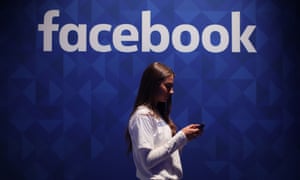Jay Doubleyou: opening up the world of classical music to children
In Venezuela they are doing something:
Jay Doubleyou: what does your taste in music say about you?
And in Paraguay:
Tunes from the Trash
Just outside the Paraguayan capital city of Asuncion lies the town of Cateura. It's an impoverished settlement ranged along the banks of a stinking, polluted river, in the shadow of a giant landfill site. Many of its inhabitants scratch a living by reclaiming objects from the endless ocean of garbage to sell. Recycling of a kind. But for the last ten years the residents of Cateura have been part of a recycling project of a much sweeter sort.
La Orquesta de Instrumentos Reciclados de Cateura -- the Recycled Orchestra of Cateura -- use materials from the landfill site to create musical instruments. An oil drum for a cello, a pipe for a flute, a tin can for a guitar. They've toured the world and recorded with the likes of Metallica.
As the Orchestra leader Favio Chávez says, "The world sends us garbage. We send back music."
The BBC's South America Correspondent Wyre Davies visits Cateura, meets Favio Chávez and other members of the Recycled Orchestra and learns how trash, and lives, are being transformed by music.
Just outside the Paraguayan capital city of Asuncion lies the town of Cateura. It's an impoverished settlement ranged along the banks of a stinking, polluted river, in the shadow of a giant landfill site. Many of its inhabitants scratch a living by reclaiming objects from the endless ocean of garbage to sell. Recycling of a kind. But for the last ten years the residents of Cateura have been part of a recycling project of a much sweeter sort.
La Orquesta de Instrumentos Reciclados de Cateura -- the Recycled Orchestra of Cateura -- use materials from the landfill site to create musical instruments. An oil drum for a cello, a pipe for a flute, a tin can for a guitar. They've toured the world and recorded with the likes of Metallica.
As the Orchestra leader Favio Chávez says, "The world sends us garbage. We send back music."
The BBC's South America Correspondent Wyre Davies visits Cateura, meets Favio Chávez and other members of the Recycled Orchestra and learns how trash, and lives, are being transformed by music.
BBC Radio 4 - Tunes from the Trash
The Recycled Orchestra have been the subject of a recent documentary film:
The Landfillharmonic
And an illustrated children's book: Ada's Violin | Book by Susan Hood, Sally Wern Comport | Official Publisher Page | Simon & Schuster UK
For more information about the Recycled Orchestra:
Orquesta Reciclados Cateura
Plus lots of videos and more info:
La Orquesta de Instrumentos Reciclados de Cateura at DuckDuckGo
.
.
.
Plus lots of videos and more info:
La Orquesta de Instrumentos Reciclados de Cateura at DuckDuckGo
.
.
.




